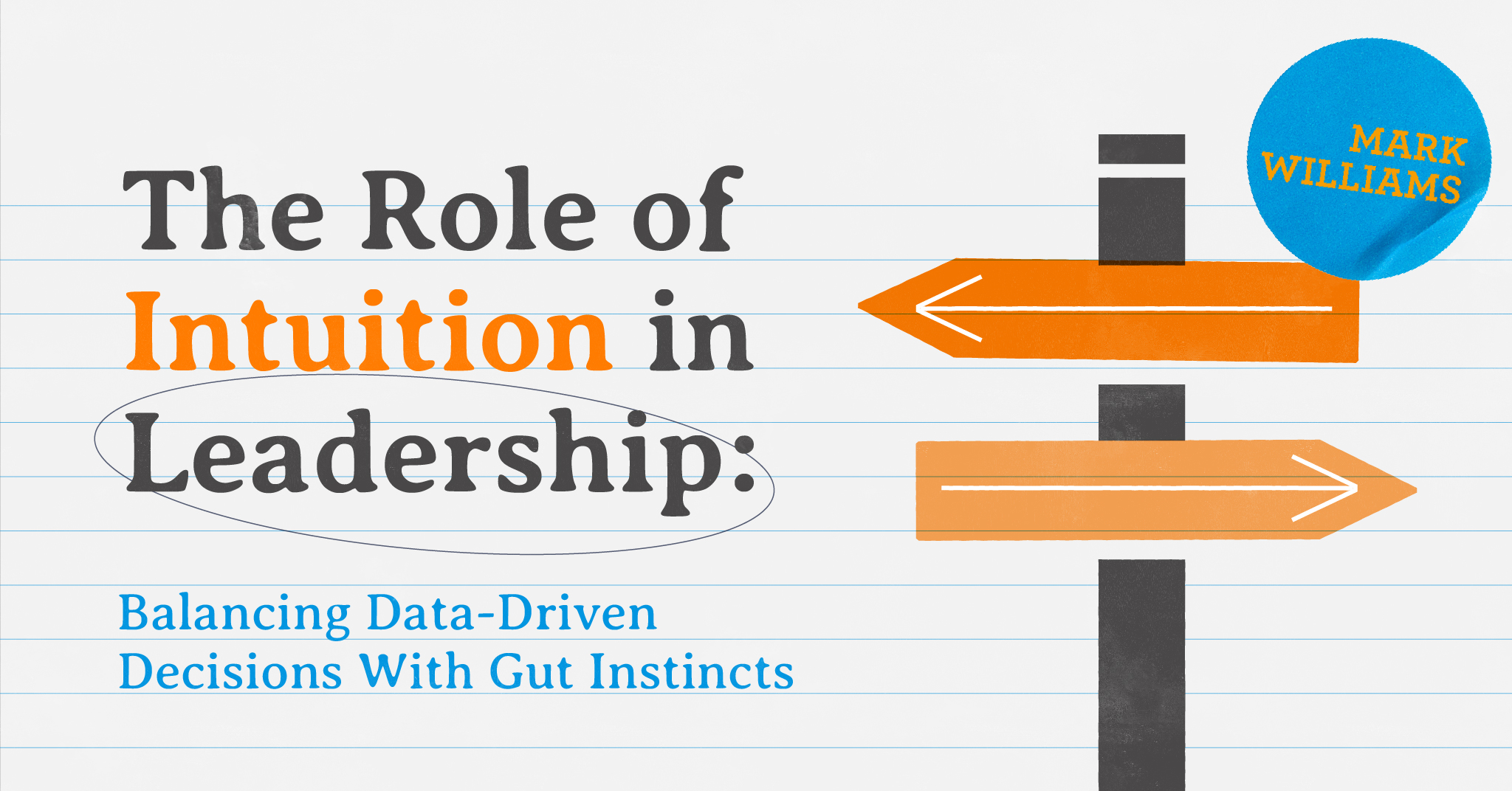The interplay between data-driven decisions and gut instincts is a perennial topic of discussion. While data provides valuable insights and guides strategic direction, intuition serves as a compass navigating the uncertainties of the human experience. In this delicate balance, effective leaders harness the power of both, recognizing that intuition is not antithetical to rationality but rather complements it in nuanced ways.
Data-driven decision-making is the cornerstone of modern leadership. With access to vast amounts of information, leaders can analyze trends, forecast outcomes and make informed choices. From financial metrics to market analysis, data empowers leaders to mitigate risks and capitalize on opportunities. However, in a sea of numbers lies a crucial element often overlooked: human behavior.
This is where intuition comes into play. Beyond the realm of spreadsheets and charts, intuition taps into the subtle nuances of human dynamics and emotions. It’s the gut feeling that guides a leader when faced with ambiguity or when data alone fails to capture the full picture. Intuition enables leaders to empathize with their team members, anticipate reactions and adapt their approach accordingly. It’s the instinctual response honed through experience and emotional intelligence.
But intuition is not without its pitfalls. The line between intuition and bias can blur, leading to subjective judgments and irrational decisions. The key lies in cultivating a self-awareness that distinguishes between intuitive insights and personal biases. Mindfulness practices, reflection and seeking diverse perspectives can help leaders temper their intuition with rationality, ensuring a balanced decision-making process.
Fostering a culture that values open dialogue and encourages dissenting opinions can challenge leaders to question their instincts and consider alternative viewpoints. By embracing constructive criticism and feedback, leaders create an environment where intuition is tempered by collective wisdom, leading to more robust decisions.
The role of intuition in leadership is not to replace data but to complement it. It’s the art of discerning when to rely on empirical evidence and when to trust one’s instincts. By striking this delicate balance, leaders can navigate complexity with confidence, steering their organizations toward success.
The interplay between data-driven decisions and intuition forms the cornerstone of effective leadership. While data provides the foundation for strategic direction, intuition offers the compass guiding leaders through the complexities of human interactions. By embracing both, leaders can harness the power of rationality and emotional intelligence, ensuring agile and adaptive decision-making in an ever-changing world.

